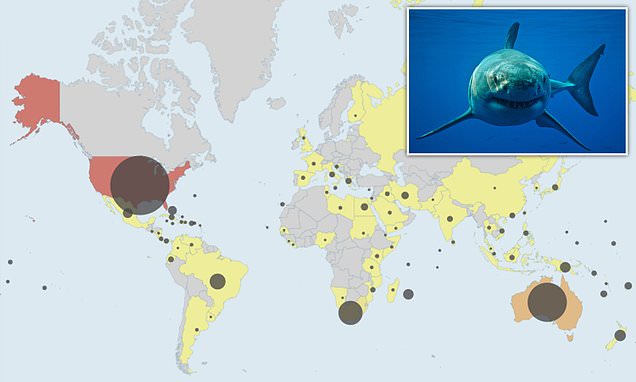New Court Battle: DOJ Escalates Fight Against Google's Search Dominance

Table of Contents
The DOJ's Antitrust Case Against Google: A Deep Dive
The core of the DOJ's antitrust lawsuit against Google centers on allegations of anti-competitive behavior designed to maintain its stranglehold on the search engine market. The DOJ claims Google has abused its dominant position to stifle competition through a range of exclusionary practices.
Specifically, the DOJ alleges that Google engaged in:
- Exclusionary agreements: The DOJ points to agreements with mobile phone manufacturers and carriers, forcing them to make Google Search the default search engine, effectively locking out competitors. This prevents consumers from easily accessing alternative search engines.
- Payments for default status: Google allegedly paid significant sums to be the pre-installed default search engine on browsers and devices, further cementing its dominance and hindering the ability of rivals to gain traction. This practice makes it significantly harder for smaller search engines to compete.
- Algorithmic manipulation: The DOJ contends that Google manipulates its search algorithms to favor its own products and services over those of competitors, pushing down relevant results from rival companies and making it difficult for them to gain visibility. This arguably creates an uneven playing field.
Previous attempts to regulate Google's power, including smaller-scale investigations and settlements, haven't been enough to address these concerns, prompting the DOJ to take this more aggressive legal route. The DOJ will likely present substantial evidence supporting these claims, including internal Google documents and testimony from former employees.
Google's Defense Strategy: Expected Counterarguments
Google will undoubtedly mount a robust defense against the DOJ's accusations. Their strategy will likely focus on several key arguments:
- Innovation and consumer benefits: Google will emphasize its innovations in search technology and argue that its market dominance is a direct result of providing superior products and services that benefit consumers. They'll likely highlight their free services and constant improvements.
- Fair competition and consumer choice: Google will argue that it operates in a highly competitive market, with numerous alternatives available to consumers. They'll argue that consumers choose Google because they prefer it and that their actions have not unfairly limited consumer choice.
- Challenging market definition: Google may challenge the DOJ's definition of the relevant market, arguing that the market is broader than just general-purpose search engines and includes other types of information retrieval services. This could narrow the scope of the DOJ's case.
To support these arguments, Google will likely call upon expert witnesses, including economists and technology specialists, to testify to the competitiveness of the market and the benefits of Google’s services.
Potential Outcomes and Implications of the Court Battle
The outcome of this lawsuit is highly uncertain. Three main scenarios are possible:
- DOJ victory: A DOJ win could lead to significant changes in Google's business practices, potentially including structural separation of its search engine from other businesses, substantial fines, and behavioral remedies like changes to its search algorithms.
- Google victory: A Google victory would solidify its current dominance and potentially embolden other large tech companies to adopt similar strategies.
- Settlement: A settlement could involve Google agreeing to certain concessions, such as changes to its business practices, in exchange for avoiding a full-blown trial and potentially negative publicity.
Regardless of the outcome, the implications for the tech industry and consumers are substantial. A DOJ victory could significantly alter the competitive landscape of the search engine market, potentially leading to the emergence of new competitors and greater innovation. However, it could also lead to unintended consequences such as increased costs or reduced quality of services.
The Broader Context: Global Regulatory Scrutiny of Big Tech
The DOJ's lawsuit against Google is part of a broader global trend of increased regulatory scrutiny of Big Tech companies. Similar antitrust actions have been pursued against Google and other tech giants like Facebook, Amazon, and Apple in the European Union, the UK, and other jurisdictions. These actions reflect a growing concern among governments about the unchecked power and influence of these massive corporations and their potential to stifle competition and harm consumers. This growing global concern suggests that the future likely holds more regulatory challenges for Google and other similar tech giants. The debate about the role of governments in regulating technology will only intensify in the coming years.
Conclusion: The Future of Google and the Fight Against Search Engine Dominance
The DOJ's antitrust lawsuit against Google is a landmark case with far-reaching implications for the future of the search engine market and the broader tech industry. The potential outcomes range from significant changes to Google's business model to the reinforcement of its current dominance. The case highlights the crucial importance of maintaining competition and ensuring consumer welfare in the digital age. The trajectory of this case will significantly impact innovation and the competitive dynamics within the tech sector. Stay tuned for further updates on this critical Google antitrust lawsuit and its potential impact on the future of search engine dominance.

Featured Posts
-
 Assessing The Pan Nordic Military Alliance A Focus On Sweden And Finland
Apr 22, 2025
Assessing The Pan Nordic Military Alliance A Focus On Sweden And Finland
Apr 22, 2025 -
 Aramco And Byd Join Forces Exploring The Future Of Electric Vehicles
Apr 22, 2025
Aramco And Byd Join Forces Exploring The Future Of Electric Vehicles
Apr 22, 2025 -
 The Impact Of Over The Counter Birth Control On Reproductive Rights
Apr 22, 2025
The Impact Of Over The Counter Birth Control On Reproductive Rights
Apr 22, 2025 -
 New Business Hotspots Across The Nation An Interactive Map
Apr 22, 2025
New Business Hotspots Across The Nation An Interactive Map
Apr 22, 2025 -
 Blue Origin Rocket Launch Cancelled Vehicle Subsystem Problem
Apr 22, 2025
Blue Origin Rocket Launch Cancelled Vehicle Subsystem Problem
Apr 22, 2025
